Science Museum, London
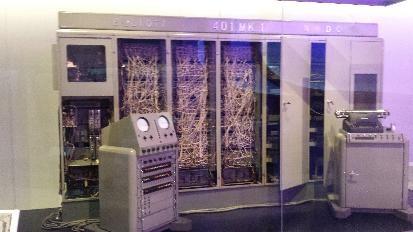 |
CCS’s senior partner is, of course, well known for its huge exhibition of science
and technology artefacts.
A large gallery is devoted the technology of computing and calculation.
Three exhibits of particular interest are the CDC 6600 and Russian BESM 6 supercomputers
The NPS’s Pilot ACE and a “physical timeline” of Apple computers.
But there is much else to see for the discerning eye.
Further details at the museum´s webpages on computing
SIM - Science and Industry Museum, Manchester
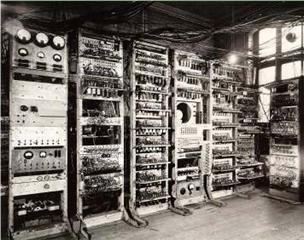 |
CCS’s other founding partner museum is SIM, a museum dedicated to technology
with a Manchester connection.
Manchester University’s seminal contribution to computing and the presence
of Fujitsu and its predecessor companies such as ICL and Ferranti
in Manchester is well represented in the collection.
The undoubted star is the replica of the ´Manchester Baby´ computer -
more properly the ‘Small Scale Experimental Machine’,
the world´s first all-electronic stored program computer first run in 1948.
Tucked away in the textiles section and often overlooked by computing enthusiasts
is a 1910 Jacquard loom controlled by punched cards.
See here for more information
Bletchley Park
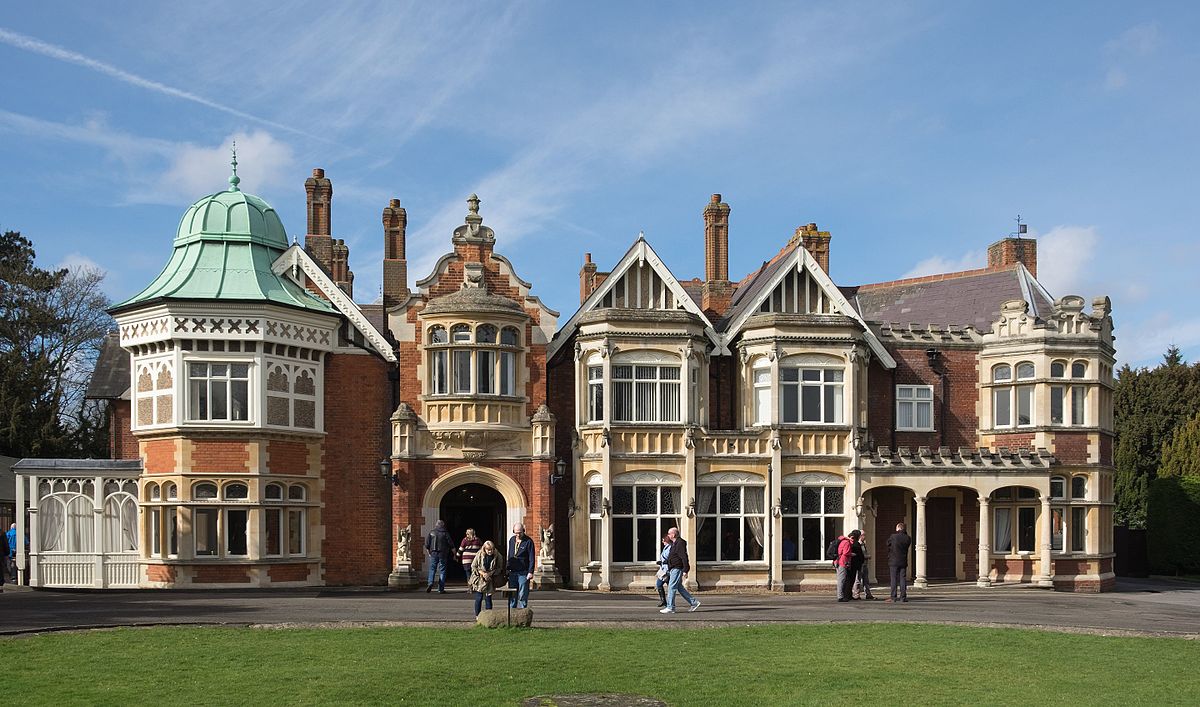 |
Bletchley Park was the wartime location for the teams which learned how to decipher German telecommunications traffic much of which had been encrypted using their Enigma machines. Bletchley Park´s main website is here.
The National Museum of Computing
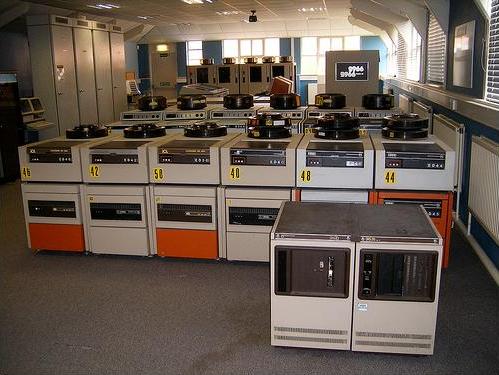 |
Situated within Bletchley Park is TNMoC, another of CCS´s partners and, in many ways, the most active. Here can be seen computing equipment ranging from punched card installations to personal computers, from hand-held calculators to 1980s ICL mainframe computers.
A replica of ´the Bombe´ - Alan Turing’s electro-mechanical machine for finding the all important, ever-changing settings in the Enigma is on display and is regularly demonstrated.
Also present is a replica of Colossus an electronic codebreaking machine targetting the Lorenz enciphering system used by the German high command.
Altogether it is a huge collection, much of it in working order and regularly demonstrated.
Many machines not in working order are under active restoration by enthusiasts
and CCS members.
Find out more information here.
IBM Hursley Museum
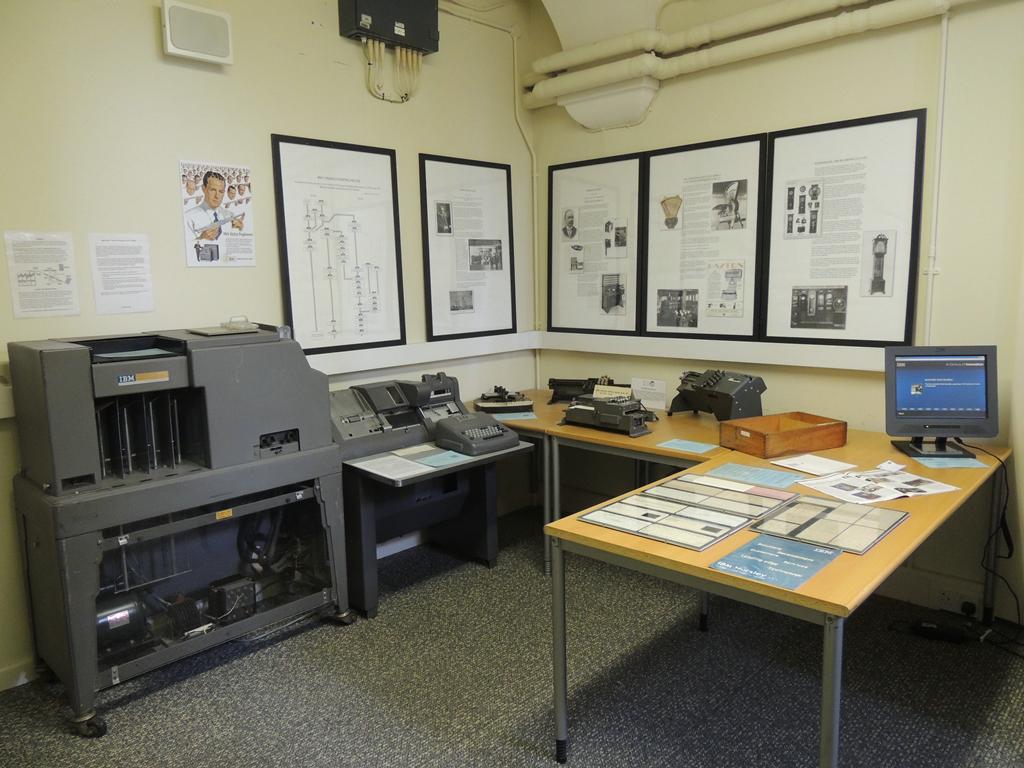 |
A museum situated in the lower ground floor of Hursley House, IBM’s “stately home” in Hampshire.
The IBM Hursley Museum has an impressive collection of IBM artefacts from the time-recording
clocks of the early 20th century to quite modern laptops and tablet computers.
The museum’s website
is worth a visit in itself.
Situated as it is within a working IBM site, the museum is not generally open to the
public but may be open to organised groups by prior arrangement.
Contact for details.
Museum of Computing
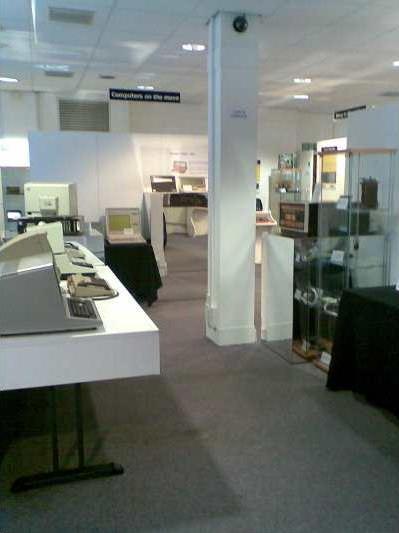 |
A small museum situated in Swindon town centre,
the Museum of Computing is of particular interest to people who are keen to see
material from the 1980s onwards although earlier periods are not forgotten.
A regularly changing exhibition is managed by a group of volunteers who put on
periodic events and draw a following which is more than local.
The Museum of Computing´s website
gives details of opening hours.
Centre for Computing History
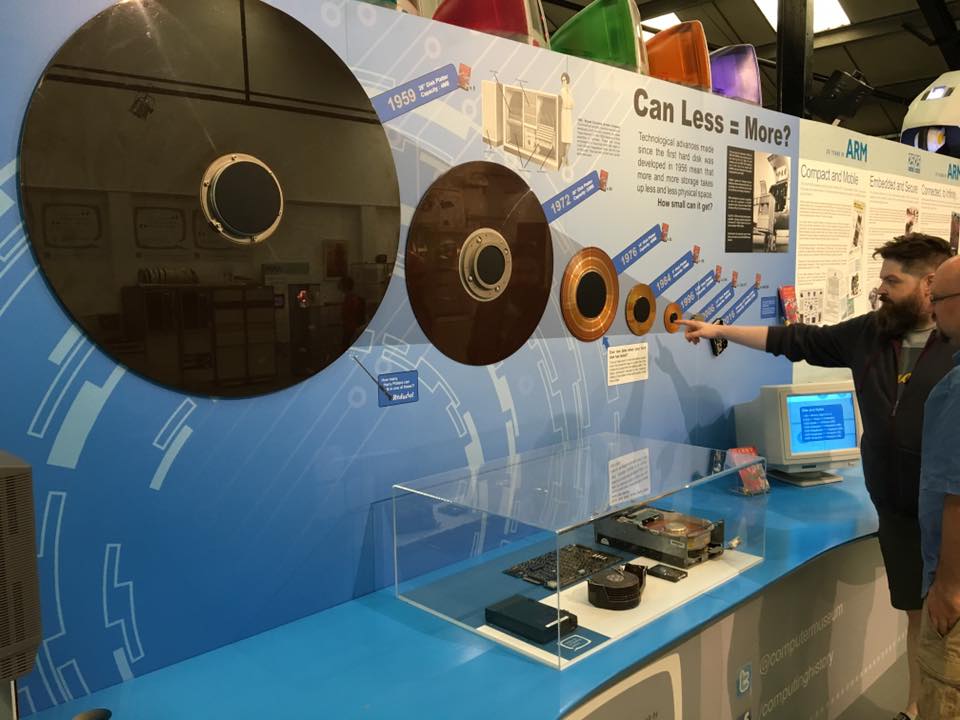 |
The Centre for Computing History in Cambridge
has a collection of over 1,000 different machines, 11,000 software packages and
13,000 books/manuals/magazines.
It is home to the MegaProcessor, a computer made entirely from discreet transistors,
a unique teaching resource that shows students exactly how a microprocessor works,
The Centre also provides equipment for use in film and television work.
CCS members will probably have seen some of their machines without knowing it
most notably on BBC’s The IT Crowd.
The Centre for Computing History is open Wednesday to Sunday.
See their website for details.
Time-Line Computer Archive
 |
A computer museum in the making in Wigton, Cumbria. Only open by arrangement at present, its star exhibit is an LGP-30 Eurocomp, a small desk-sized first generation computer. It has 113 valves and 1450 diodes, a drum memory and was first introduced in 1956. It is believed that its designer Stanley Frankel has a link to the Ferranti Mark 1 computer.
They also have Arthur, an ICT 1301 the former partner of Flossie, our own adopted 1301. Sadly Arthur is not in working condition, though its accommodation is of a rather superior quality.
Please consult their website for details of their progress and viewing arrangements.
The Jim Austin Computer Collection
 |
The Jim Austin Computer Collection has been built up since 1986, now containing over 1000 machines and many related items. The collection is designed to show the evolution of computer technology from the beginnings to the present day. It shows the different classes of computers (main frame, workstation etc.), different technology (valve, relay etc), manufacturers etc. It is in East Yorkshire Wolds, 20 miles east of York and is housed in 8000 sq ft of converted farm buildings, where most items can be viewed. At the moment visits are by appointment and guided by our team of volunteers. It has a large collection of Cray supercomputers, an IBM mainframe (3084), Fujitsu VPX, IBM BlueGene/L and a huge DEC PDP collection amongst the items.
Please consult their website for details of their progress and viewing arrangements.